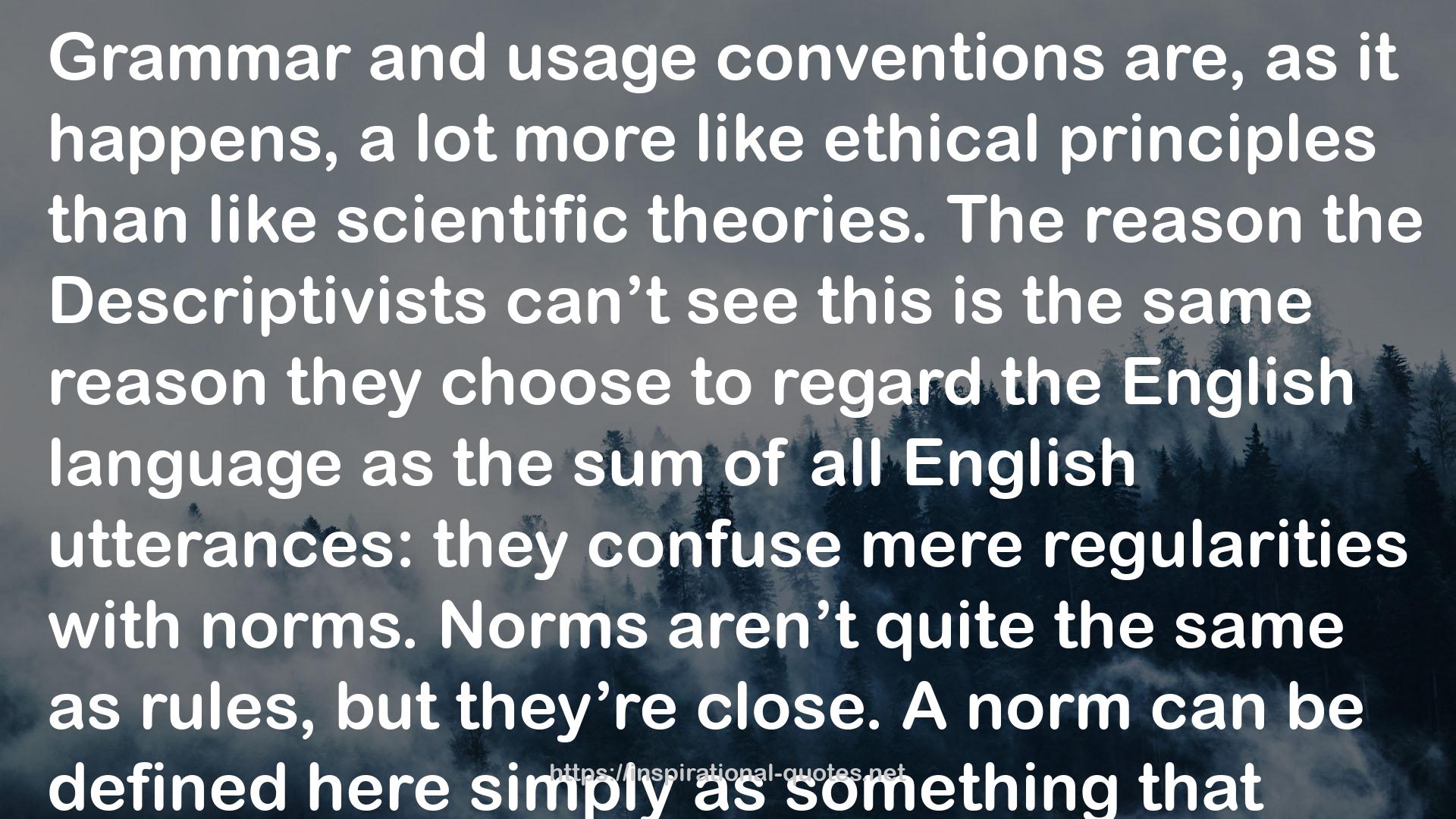" Grammar and usage conventions are, as it happens, a lot more like ethical principles than like scientific theories. The reason the Descriptivists can’t see this is the same reason they choose to regard the English language as the sum of all English utterances: they confuse mere regularities with norms. Norms aren’t quite the same as rules, but they’re close. A norm can be defined here simply as something that people have agreed on as the optimal way to do things for certain purposes. Let’s keep in mind that language didn’t come into being because our hairy ancestors were sitting around the veldt with nothing better to do. Language was invented to serve certain very specific purposes—“That mushroom is poisonous”; “Knock these two rocks together and you can start a fire”; “This shelter is mine!” and so on. Clearly, as linguistic communities evolve over time, they discover that some ways of using language are better than others—not better a priori, but better with respect to the community’s purposes. If we assume that one such purpose might be communicating which kinds of food are safe to eat, then we can see how, for example, a misplaced modifier could violate an important norm: “People who eat that kind of mushroom often get sick” confuses the message’s recipient about whether he’ll get sick only if he eats the mushroom frequently or whether he stands a good chance of getting sick the very first time he eats it. In other words, the fungiphagic community has a vested practical interest in excluding this kind of misplaced modifier from acceptable usage; and, given the purposes the community uses language for, the fact that a certain percentage of tribesmen screw up and use misplaced modifiers to talk about food safety does not eo ipso make m.m.’s a good idea. "
― David Foster Wallace , Consider the Lobster and Other Essays
